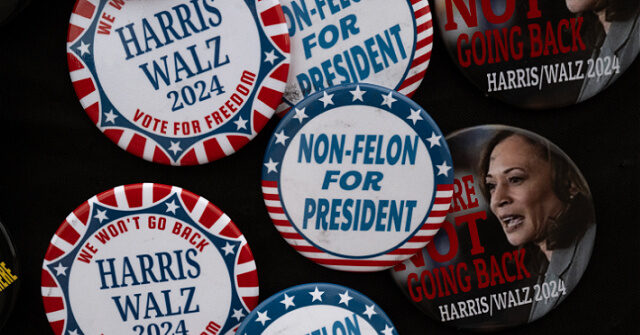Recent polling data reveals significant differences in the motivations behind independents’ support for Vice President Kamala Harris and former President Donald Trump. A survey conducted by Economist/YouGov highlights that many independents backing Harris are primarily casting their vote as a reaction against Trump rather than expressing a favorable opinion of Harris herself. The data indicates that a substantial majority—65 percent—of Harris supporters are not primarily voting for her, while about one-third of them cite their primary motivation as voting “against” Trump. This trend starkly contrasts with Trump supporters, where around 74 percent affirm their votes are predominantly for Trump, with only 25 percent voting against Harris.
The division among independents is particularly pronounced. A significant 51 percent of Harris supporters in this group indicate they are predominantly voting against Trump, while only 45 percent express a vote of support for Harris. On the other hand, a large majority of Trump-supporting independents, about 68 percent, claim they are voting for Trump, with a mere 29 percent stating they are voting against Harris. This data suggests that independents view their choices largely through the lens of opposition to the other candidate rather than alignment with their preferred candidate.
Adding to the narrative of uncertainty surrounding the election, a plurality of independents—38 percent—expressed uncertainty about who would emerge victorious in the presidential race. This was followed by 33 percent predicting a Harris win and 28 percent anticipating a Trump victory. Such ambivalence reflects a broader sense of unpredictability regarding voter sentiment and the potential outcome of the election. This survey was conducted from September 29 to October 1, 2024, with responses from 1,638 U.S. adult citizens, highlighting a snapshot of public opinion as the electoral landscape evolves.
These findings align with broader electoral trends, including a notable shift among independents in a previous NPR/PBS News/Marist poll, where Trump gained a 14-point advantage among this demographic after previously trailing Harris by 11 points. This swing indicates that independent voters are fluid in their preferences, often influenced by the overarching political climate and candidate behavior as the election date approaches.
As the political narrative intensifies, Trump’s upcoming rally in Butler, Pennsylvania, on October 5 adds another layer of engagement for his supporters. This rally is set against the backdrop of a recent assassination attempt on Trump, and his campaign plans to honor the memory of Corey Comperatore, who lost his life attempting to protect his family during the incident, along with recognizing others who were injured. This context elevates the stakes for Trump’s campaign, positioning it as not only a political rally but also a tribute to resilience and community solidarity in the face of violence.
Overall, the contrasting motivations of voters, particularly among independents regarding Trump and Harris, suggest a complex and often adversarial electoral environment. As momentum swings back and forth, the ability of each candidate to galvanize support hinges not solely on their individual platforms but also on the prevailing public sentiments surrounding their opponent. This dynamic could prove critical as the election approaches, underscoring the vital role independents will play in determining the outcome.

